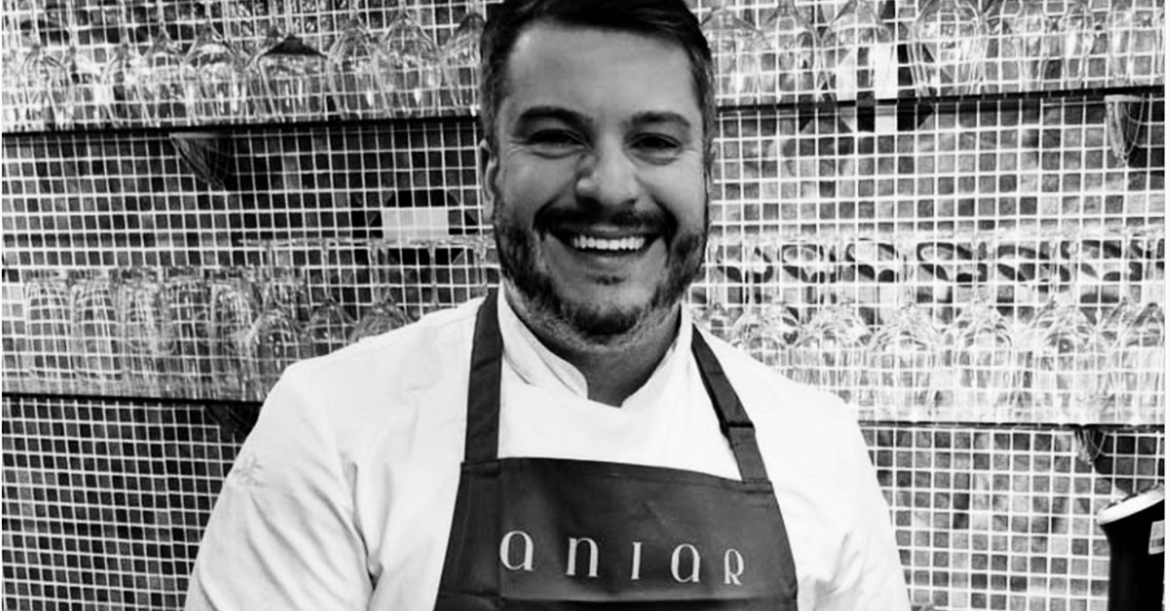This article was originally published in the Summer 2025 issue of Hospitality Ireland magazine, in July of 2025.
Galway’s food scene recently welcomed an exciting new addition, with the launch of Kombu, a ramen-and-bao bar that well-known chef, restaurateur and author JP McMahon has described as his “love letter to Japan”.
Kombu, on Druid’s Lane, joins McMahon’s acclaimed restaurant portfolio, which includes the Michelin-starred Aniar and the much-loved Cava Bodega.
Head chef Gabriel Hoefling Ossani talks to Hospitality Ireland about what to expect.
Gabriel, please tell us about the opening of Kombu.
Kombu is the realisation of a long-time dream from Galway chef, restaurateur and author JP McMahon, inspired by his deep love for Asian cuisine.
With over a decade of experience working with Japanese food and a genuine respect for the culture, I couldn’t be more excited to help bring this vision to life.
Kombu isn’t about strict tradition. It will be our take on Japanese food: playful, bold, and, above all, delicious.
Why did you choose ramen and bao?
Galway diners have refined palates and are open-minded when it comes to international cuisine, and we think it’s time ramen and bao buns had their moment here.
There’s a real appetite in the city for bold, authentic flavours, and Kombu is here to satisfy that craving, with our playful interpretation of Japanese- inspired food.
At whom is Kombu aimed?
Kombu is for anyone who wants to sip a great glass of sake or natural wine, listen to good music, and enjoy food made from scratch – always with care, intention, and a focus on flavour.
Please tell us about your own background and career so far.
I started my career in the kitchen with a stage at Kinoshita, a Michelin-starred Japanese restaurant back home in Brazil. It was part of my college training, but it quickly turned into something much more – I fell in love with the culture. The environment was intense – I wasn’t even allowed to touch a fish for the first three months – but what I took away from that experience wasn’t just about cooking – it was about respect, discipline, and deep cultural appreciation.
From there, I began formally studying Japanese cuisine and worked under a Japanese chef while still in school. Eight years later, I earned my diploma in sushi proficiency from the Japanese government and the All- Japan Sushi Association (AJSA).
My journey took me through kitchens in Spain, Italy and Dublin, including at Taste by Dylan McGrath, one of Ireland’s top Japanese-inspired restaurants at the time. I’ve also had the privilege of doing internships at world-renowned restaurants like Geranium in Copenhagen and Central in Lima.
For the past year, I’ve been a senior chef at Aniar in Galway, always bringing my background in Japanese cuisine into the mix. No matter where I go, that foundation is part of everything I cook.
What first drew you to hospitality?
I actually started out with a degree in business and landed my first ‘adult’ job in the logistics department of a major food company back home – they exported pork and chicken products to Europe. One day, during a training session, I visited the production floor to learn more about the process. That’s when it hit me: I didn’t want to be behind a desk. I wanted to work with my hands, to create something real.
Not long after, I enrolled in culinary school and secured a stage in a restaurant – and I haven’t looked back since. That decision changed everything.
Is now a good time to open a restaurant?
Opening a restaurant isn’t exactly the smartest move in any moment if your only goal is to make money – it demands more than most people can imagine – but, at the same time, it’s one of the most rewarding jobs out there. You get to feed people, make them smile, create memories, and do what you love every day – cook.
If you’re only looking at the numbers, the answer might be no, but when you think about the bigger picture, it’s absolutely worth the risk.
What are the changing trends in hospitality – people’s expectations, new elements, etc. – and how do these connect with what you are doing at Kombu?
One of the biggest shifts we’re seeing in hospitality is that people are leaning more toward casual, relaxed dining experiences, but without compromising on quality. There’s also a growing appreciation for things like natural wines and sake, which align beautifully with what we will offer at Kombu.
At the same time, diners are becoming more conscious about where their food comes from. There’s a real demand for transparency, sustainability, and a closer connection to local ingredients. That’s something we take seriously, just like we do at Aniar. At Kombu, we’ll be working with locally sourced fish, Irish seaweed, and seasonal produce, always aiming to highlight the best of what’s around us while still bringing that Japanese-inspired twist.
What are the major challenges at the moment?
At Kombu, we’re not interested in shortcuts. Working with small producers, sourcing locally, and making things from scratch takes time and effort. It pushes us to be more resourceful, more intentional, and, ultimately, more connected to what we serve.
What are the main opportunities?
One of the biggest opportunities at Kombu is bringing together the best of Irish produce with the elegant simplicity of Japanese cuisine.
What do you do when you’re not working?
I love reading and just went back to running lately. Hopefully, I will run a half-marathon this year.
Any other plans on the horizon for the next year or so?
Plenty of plans involving Kombu, but that’s for another time.


AloJapan.com